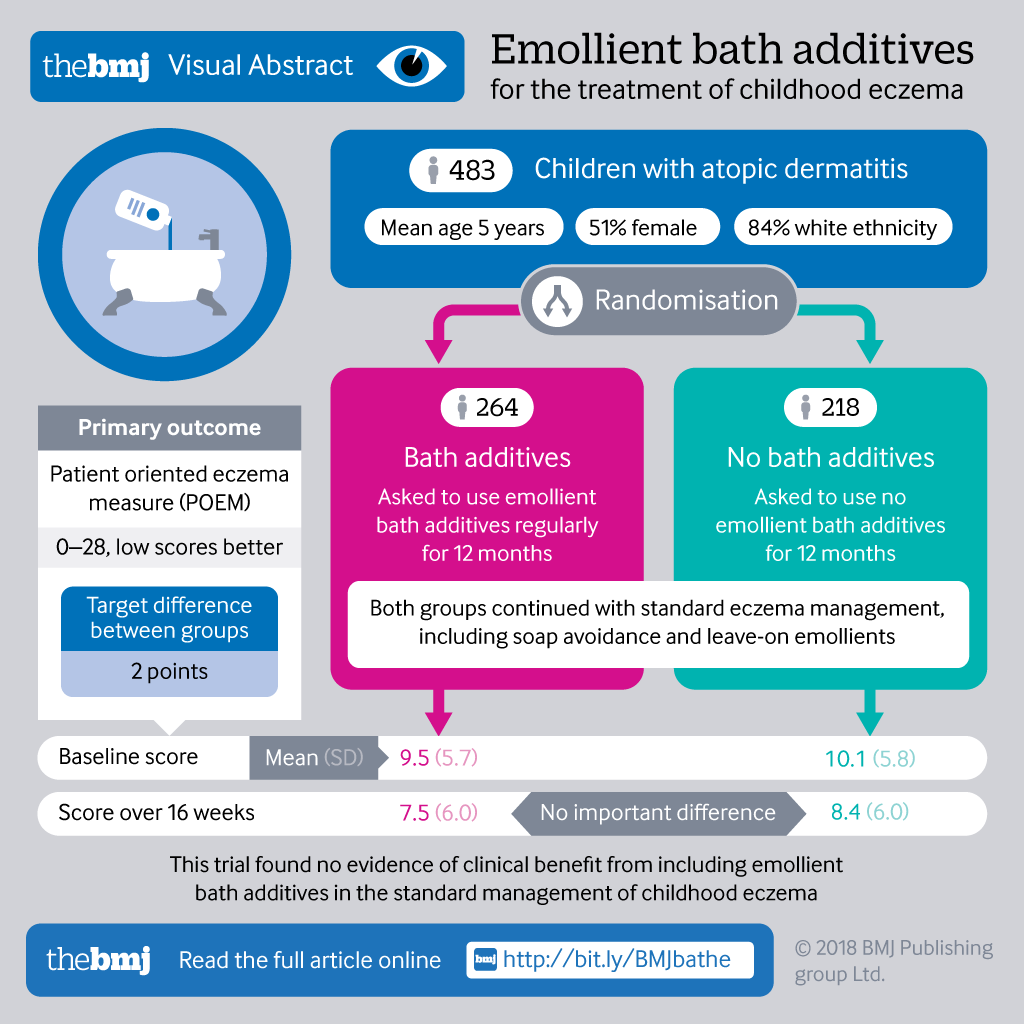Intended for healthcare professionals
CCBYNC Open access
Rapid response to:
Research

Emollient bath additives for the treatment of childhood eczema (BATHE): multicentre pragmatic parallel group randomised controlled trial of clinical and cost effectiveness
BMJ 2018; 361 doi: https://doi.org/10.1136/bmj.k1332 (Published 03 May 2018) Cite this as: BMJ 2018;361:k1332
Linked Editorial
New evidence challenges use of bath emollients for children with eczema
Opinion: Miriam Santer
Patient and carer choice for eczema treatment is crucial
Rapid Response:
Re: Emollient bath additives for the treatment of childhood eczema (BATHE): multicentre pragmatic parallel group randomised controlled trial of clinical and cost effectiveness
Firstly, thank you for reporting an article on eczema, which has been, in my experience a very under reported condition.
I have had eczema since birth as has my mother. Luckily my children escaped the curse.
I have been very lucky to be prescribed a bath additive for a very long time now containing urea and ceramide. It is a bath additive that many GPs are reluctant to prescribe due to the cost, it is now the only prescribed treatment I receive through my doctors as I have found the emollients and steroids prescribed ineffective. However on bad days I find my bath additive calming, soothing and it does significantly reduce the itch! Many bath additives are outdated use ingredients that are known to promote irritation but they are cheap !! The progress In the treatment of eczema has been almost non-existent since the time my mother was a child. We are horrified when we meet other parents with small suffering children who have been prescribed cheep ineffective emollients and bath additives or worse still leave on creams and preparations that simply block the pores and aggravate the condition.
Whilst we are in the fortunate position of being able to purchase our own treatments, I really feel that for families who truly can’t afford treatments, that if good quality products and early interventions were used, including diet and allergens monitoring, huge amounts of money would be saved in the long term because the condition of the skin can dramatically improve. This is not only money saved in products but in the wider perspective of time lost off work, mental heath interventions due to poor control of a very debilitating condition and significantly better outcomes of skin quality which avoids infection and the need for additional interventions including hospitalisation.
On a final point I find the comment ‘flushing money down the drain‘ as offensive. How can this be claimed from one study of one produc?. Appalling to be frank. I really hope that this is not used to inform decisions within the NHS. Whilst eczema does not kill it impacts on the child family and the wider functioning of the family group.
Thanks for taking the time to read my response.
Kind regards
Rachel Hayes
Competing interests: No competing interests